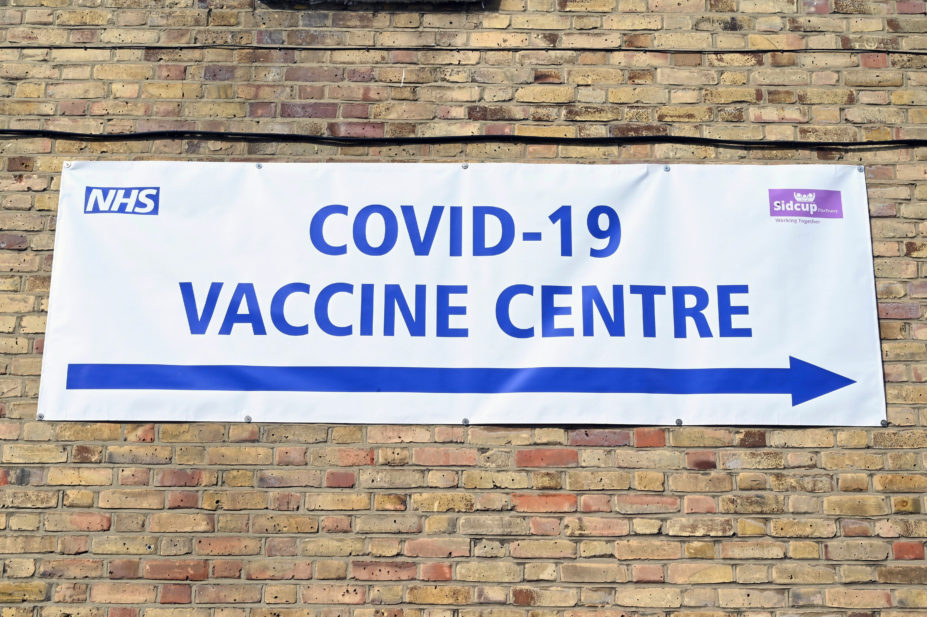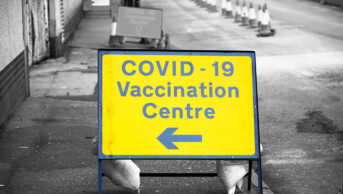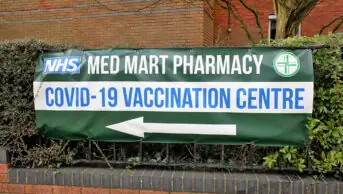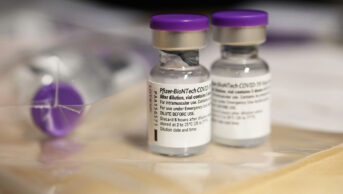
michael melia / Alamy Stock Photo
Open access article
The Royal Pharmaceutical Society has made this article free to access in order to help healthcare professionals stay informed about an issue of national importance.
To learn more about coronavirus, please visit: https://www.rpharms.com/resources/pharmacy-guides/wuhan-novel-coronavirus
The number of community pharmacy-led COVID-19 vaccination sites in England is expected to double to 400 sites by the end of March 2021, the pharmacy minister has said.
This follows an earlier target set by the government in January 2021 for 200 community pharmacy-led vaccination sites for the same month.
In a Westminster Hall debate on the impact of COVID-19 on the community pharmacy sector on 11 March 2021, pharmacy minister Jo Churchill told MPs that the COVID-19 pandemic had shown “the value of our highly skilled community pharmacy teams”.
“There are currently around 200 pharmacy-led COVID-19 vaccination sites with a target to double that number by the end of [March 2021] and there have been 60 more alone this week,” she said.
In February 2021, NHS England reopened applications for community pharmacies, lowering the requirement for the number of vaccines that must be delivered each week from 1,000 to 400 vaccines.
The next wave of designated pharmacies will start administering vaccines from 19 March 2021.
Churchill’s comments come as the Pharmaceutical Services Negotiating Committee (PSNC) continues to call for additional funding for the sector to cover their costs associated with the pandemic.
Churchill said she was “well aware of the pressure that community pharmacy is under”, adding that the government had put “in place a package of measures and support for the sector”.
This included access to “some general COVID-19 business support, including various rates relief, some retail, leisure and hospitality grants and we estimate that there has been access to about £82m in grants,” she said.
This funding was in addition to a government loan of £370m to community pharmacies between April and July 2020.
Providing those advanced payments “helped alleviate those immediate cash flow concerns”, said Churchill.
“But, since then, pharmacies have been paid for the increased items they’ve dispensed, reimbursement prices were increased to reflect the higher drug prices and payments have been made under the pharmacy quality scheme,” she added.
Churchill confirmed that the government was “still in discussions with the PSNC about the reimbursement of COVID-19 costs, incurred by community pharmacy”.
“I expect to deduct any agreed funding from the £370m advance payments and to discuss timescales around the advance separately with the PSNC being very mindful of the pressures,” she said.
Commenting on the debate, Mark Lyonette, chief executive of the National Pharmacy Association, said support for the sector “is at an all-time high”.
“The clear message from MPs today is that funding must be sorted so that pharmacies can survive and help the NHS recover from the pandemic,” he said.
“The question now is whether [Rishi Sunak, chancellor of the exchequer,] and those at the top tier of NHS England are listening.”
Claire Anderson, chair of the English Pharmacy Board at the Royal Pharmaceutical Society, commented: “Looking to the future, and with planned NHS reforms in England, it’s vital the Government and NHS make the most of pharmacists’ clinical expertise and leadership.”
During a webinar for community pharmacists on 12 November 2020, the Department of Health and Social Care said in November 2020 that it was considering writing off £370m the loan, following requests from the PSNC.


